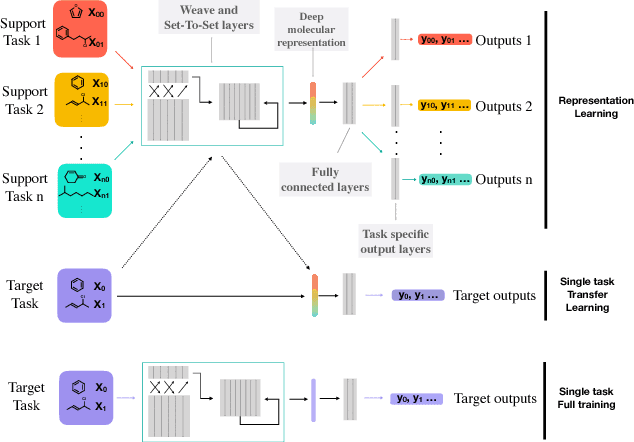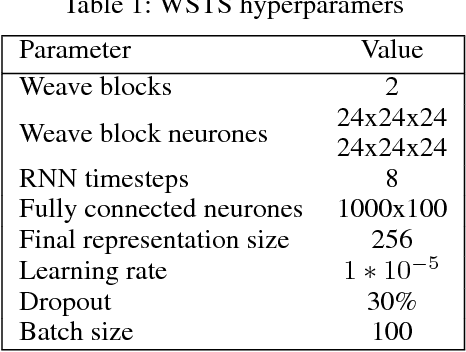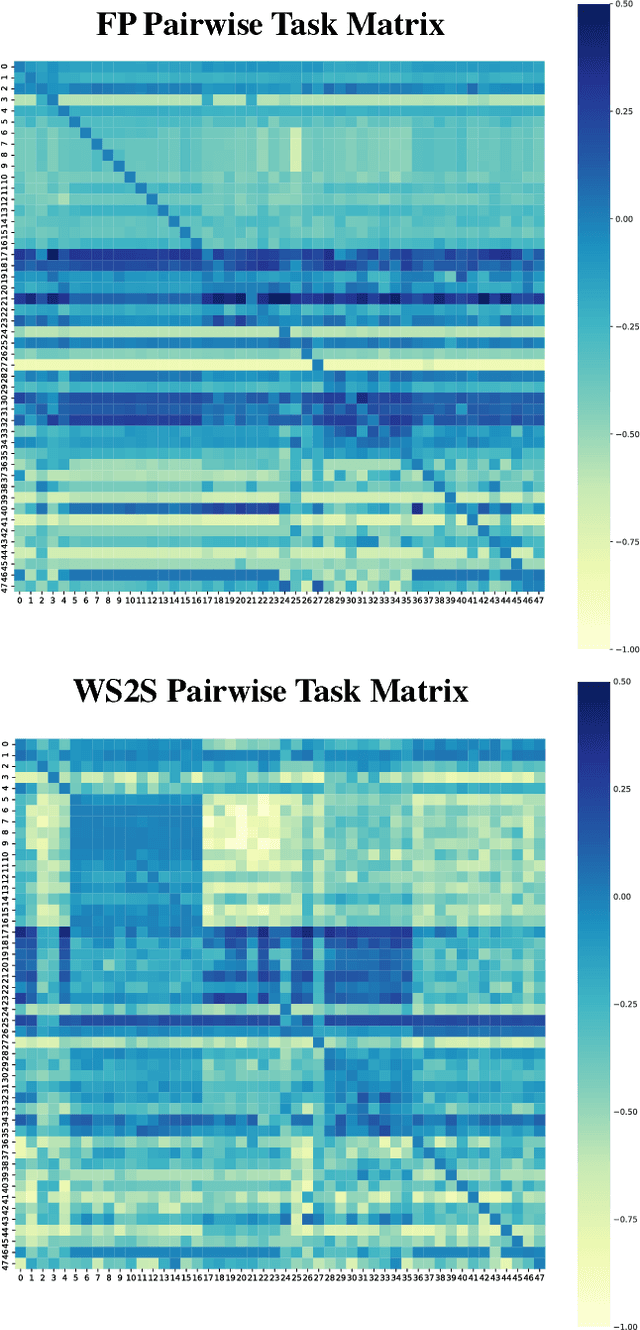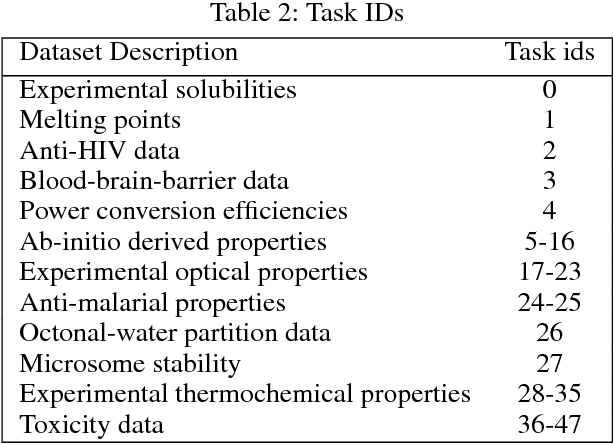Powerful, transferable representations for molecules through intelligent task selection in deep multitask networks
Paper and Code
Sep 17, 2018



Chemical representations derived from deep learning are emerging as a powerful tool in areas such as drug discovery and materials innovation. Currently, this methodology has three major limitations - the cost of representation generation, risk of inherited bias, and the requirement for large amounts of data. We propose the use of multi-task learning in tandem with transfer learning to address these limitations directly. In order to avoid introducing unknown bias into multi-task learning through the task selection itself, we calculate task similarity through pairwise task affinity, and use this measure to programmatically select tasks. We test this methodology on several real-world data sets to demonstrate its potential for execution in complex and low-data environments. Finally, we utilise the task similarity to further probe the expressiveness of the learned representation through a comparison to a commonly used cheminformatics fingerprint, and show that the deep representation is able to capture more expressive task-based information.
 Add to Chrome
Add to Chrome Add to Firefox
Add to Firefox Add to Edge
Add to Edge